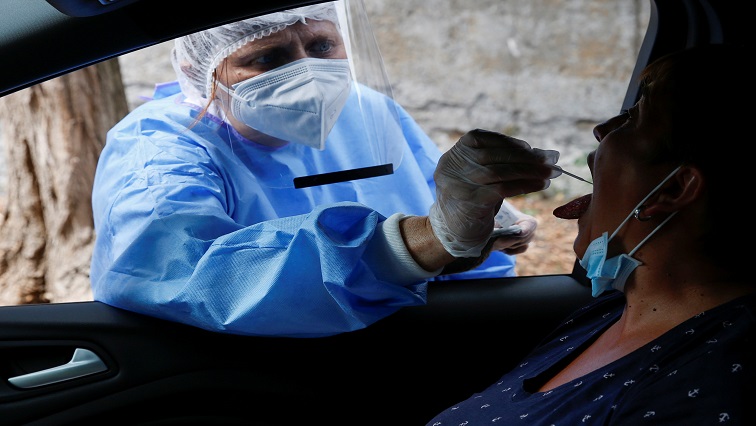South Africa has recorded 1 129 new coronavirus (COVID-19) cases in the past 24-hours, bringing the total number of cases to 1 597 724.
There have been a further 90 COVID-19-related deaths in the country, bringing the national death toll to 54 825.
In a statement, Health Minister Dr Zweli Mkhize says, “today, 90 COVID-19 related deaths have been reported: Eastern Cape 14, Free State 0, Gauteng 5, Kwa-Zulu Natal 0, Limpopo 0, Mpumalanga 6, North West 33, Northern Cape 13 and Western Cape 19 which brings the total to 54 825 deaths.
Recoveries now stand at 1 517 350, representing a recovery rate of 95%.
The number of vaccines that have been administered to healthcare workers now stands at 395 230.
Latest COVID-19 stats:

Loading…
Renowned epidemiologist Professor Salim Abdool Karim says despite isolated cases of new variants of COVID-19 being detected in South Africa, he is more concerned about the possibility of a new local variant emerging during a third wave.
The Health Department has confirmed 11 cases of the B1.1.7 variant that was first detected in the United Kingdom, and four cases of the B1.617.2 variant that was first detected in India.
These variants have now spread to countries across the world, including South Africa. So far, South Africa has registered over 1.5 million COVID-19 cases with over 54 000 deaths.
Professor Karim says that the inter-connectedness of the world means the inability to control the movement of new variants, from one country to another.
The B1.1.7 variant that was first discovered in the United Kingdom in the first week of December 2020, has now spread to over a hundred countries.
Karima is appealing to South Africans to rather focus their energies on remaining vigilance and managing their own behaviour, to remain protected.
He says the current isolated cases of other variants on South African shores is not an immediate concern.
“At this stage, probably not! If you follow the rules, you have a good chance of not getting infected. If you were infected in the second wave you are likely to have some level of protection against this variant because of the common mutation. The third is that, for those who’ve been vaccinated, like healthcare workers, they will have a level of protection against this virus.”
On the issue of perhaps banning visitors from particular countries, Karim says that comes from the tendency to put blame on other people.
“It’s because the temptation is to blame others; not to blame ourselves, when we’re walking around seeing all these people not obeying the rules. It’s convenient. Let’s blame someone else, they are bringing the COVID here, not that we are responsible for spreading our own COVID here,” says Karim.
Video: Dr Michelle Groome unpacks the nature of the new variants recently detected in South Africa






